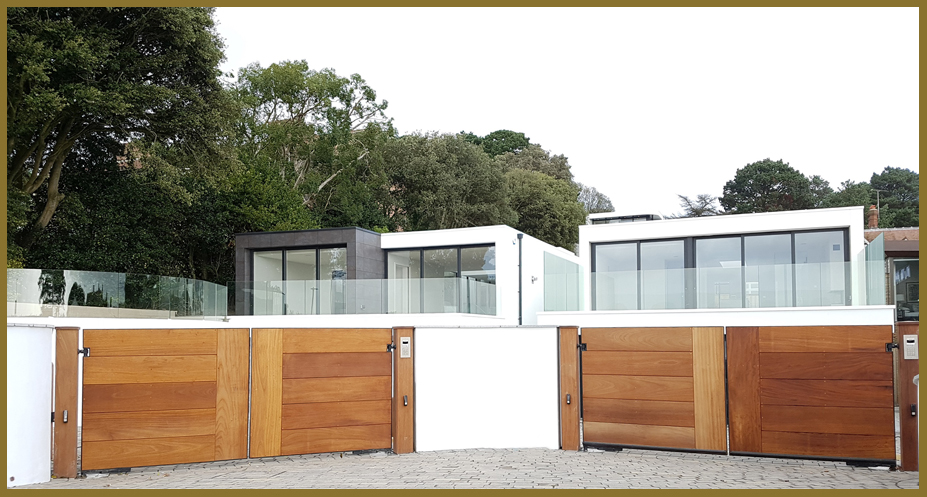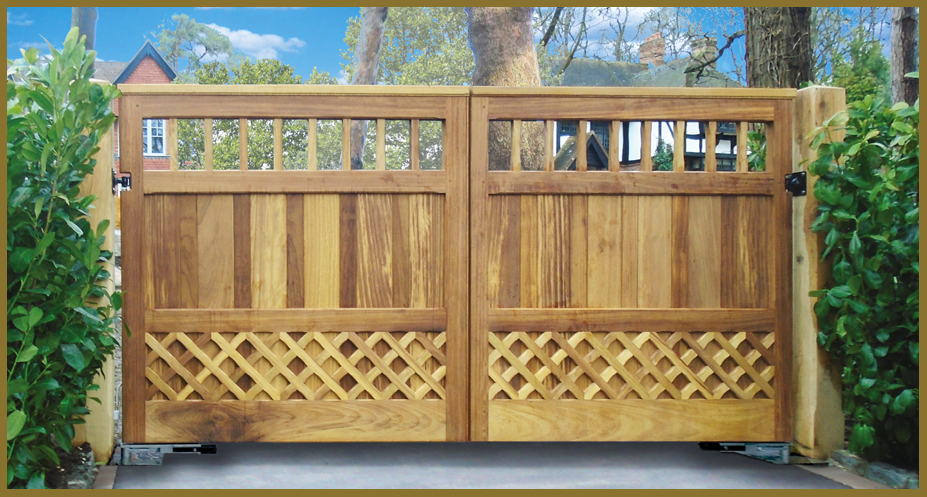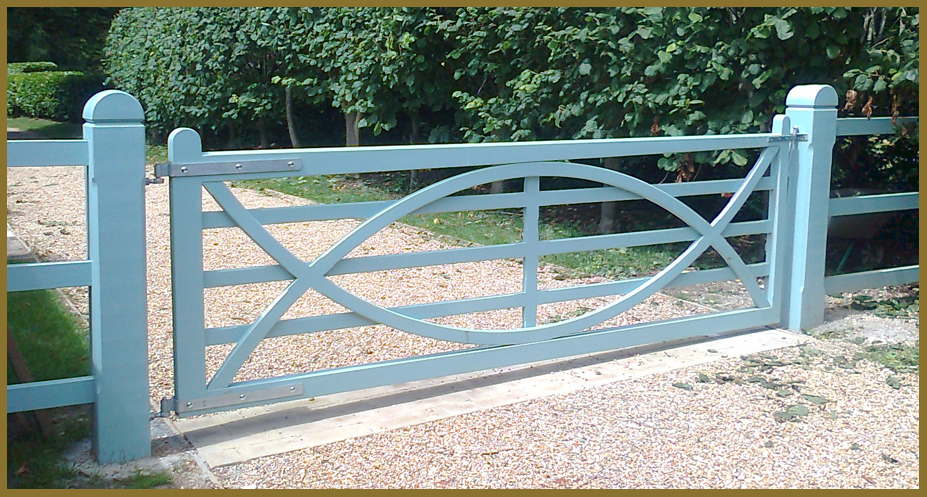
As long-standing manufacturers of steel and timber gates, the team at Penchard are very aware of material and design trends as they come and go.
Recently, we have seen the popularity of aluminium gates increase in the domestic gate market. Customers frequently ask our team about the pros and cons of specific materials and whether they are a good fit for a gate. We wanted to offer our input about the advantages and disadvantages to help property owners, architects and contractors make a more informed decision.
The appeal of aluminium gates
There’s no denying that aluminium gates are attractive, versatile and functional, and there are plenty of reasons why they would be chosen for a property.
The most common attraction of aluminium gates is that they are marketed as ‘maintenance-free’. However, the validity of this claim can be disputed. While aluminium does not rust, any material exposed to the elements and outdoors will require maintenance at some point.
Therefore, it is a matter of weighing up maintenance frequency versus ease of maintenance. Aluminium gates are often powder coated, but if the coating gets damaged, it can be very difficult to restore without stripping the finish and recoating. This process can be very expensive.
Homeowners, property owners and contractors are also drawn to aluminium gates because of their weight. Aluminium has a low density which makes it lightweight and easy to move. This is a benefit if a gate is manually operated. However, automated gate systems can mechanically open/close gates weighing up to 800 kg (in most cases) so the weight has no impact on a human operator.
Another reason people select aluminium gates is that they feel they look more modern or contemporary. While aluminium seems to have become synonymous with contemporary design, steel and timber gates are more than capable of looking striking, clean and modern.

The drawbacks of aluminium gates
Although there are good reasons to buy aluminium gates, their composition also has negatives compared to more traditional gate materials.
As mentioned above, powder-coated aluminium gates can be tricky and expensive to recoat and replace if they get damaged. While aluminium does not rust, it can still corrode. Corrosion is different from rust and refers to the chemically triggered degeneration of metal caused by environmental influences, including moisture. If the raw aluminium metal of a gate is exposed to the climate, it may corrode over time.
In reference to the lightweight properties of the metal, aluminium is also quite soft. Penchard has received calls from numerous clients asking the team to replace aluminium gates from other manufacturers with timber or steel gates. This is usually because the aluminium gates have bent/buckled very easily in the wind or have been lightly hit by vehicles.
Additionally, most aluminium gates are manufactured from extruded sections. Because of this, there is a limitation as to what gate style you can have as the manufacturers have to use the available profiles and sections. This manufacturing process creates very little opportunity for a fully bespoke gate that meets every design spec.
People also question whether aluminium is more cost-effective than traditional gate materials. This is difficult to answer as there are many variables. Like any product, you can buy poor-quality aluminium gates that are very cheap and higher-quality gates that are considerably more expensive.
In a comparison of two premium gates (one timber and one aluminium), the aluminium gate would likely be more expensive overall.

Traditional for a reason: the benefits of timber gates
It is hard to argue that aluminium gates are more robust than wood. A wooden gate is often made of very durable, reliable timber that can withstand the elements and maintain its original impressive appearance. Wooden gates are often thicker than aluminium gates, and the extra thickness makes them more sturdy, luxurious and high quality.
Wooden gates are also very versatile, and there is really no limit to the styles and designs that can be manufactured! Penchard has in-house CNC machinery and a skilled team of joiners that can bring designs to life with high-quality timber. Many clients are left amazed at what can be done with timber! From tall entrance gates to agricultural gates, the Penchard team can do it all.
There is also a much greater choice of finishes available with timber. Timber gates can be left untreated so they will weather naturally to blend in with the surroundings, or they can be painted any colour at any point in their life. Wooden gates can also be stained or covered with bespoke coatings!
Some people also believe that timber gates are outdated. The age of the tradition should not be a deterrent; instead, it should inspire confidence. The long-established art of using wood in construction simply means that the craftsmanship has been finely honed over time, and the mastery of techniques can be adapted to the modern day.
Timber gates can be manufactured to look very modern or to have a much more traditional feel and look, dependent on supplied designs and requirements.

Do timber gates have downfalls?
Wood is a natural material, and its rich tones and quality are a big part of its allure. However, because it’s organic, it can split, twist or crack if it isn’t cared for. However, the Penchard team manufactures 600-700 timber gates each year; only (approx.) 1.5% of these gates have natural defects that result in us having to rectify them due to the defect affecting the visual appearance and longevity.
Timber will also deteriorate over time if it isn’t properly cared for and maintained. Wood shrinks when the weather is hot enough and absorbs moisture when it rains, which may affect the infrastructure when left unchecked. Wooden gates will need regular maintenance to look as good as new — especially when exposed to UK weather conditions.
Penchard offers finishes that greatly slow down the rate of weathering to help support the maintenance process.
Choose Penchard for gates you can trust
At Penchard, we are passionate about the advantages and charm of timber gates. Timber is versatile, robust and quality, and we integrate these values into every timber gate our in-house experts manufacture.
Even in a market where aluminium is becoming increasingly popular, we are seeing a steep increase in requests for timber gate products. We believe in the quality of our gates, and contractors and homeowners do too.
We also work with the top architects in England and the south. They have never (to date) requested our team to use aluminium gates. We feel this tells a story of authenticity and confident choice.
Sometimes traditions prevail. In this instance, architects agree that using traditional timber (or steel) gates on properties is the only way to get the quality and appearance for architectural projects, farm buildings, residential properties and much more.
Don’t let limitations restrict the design vision and quality of your projects. Contact Penchard today on 01264 712918 or email [email protected]
